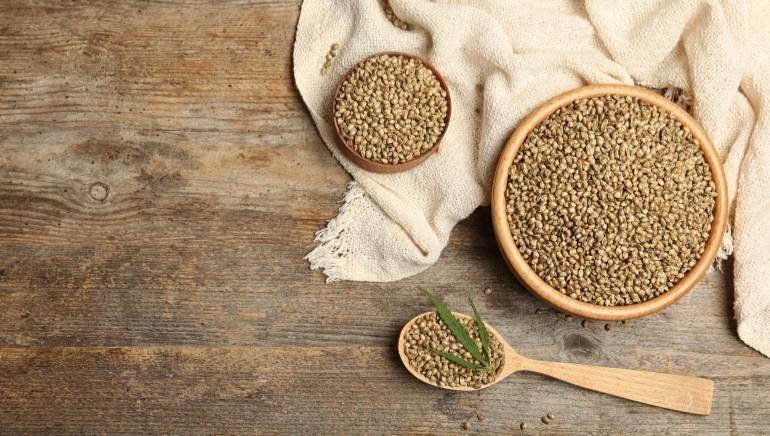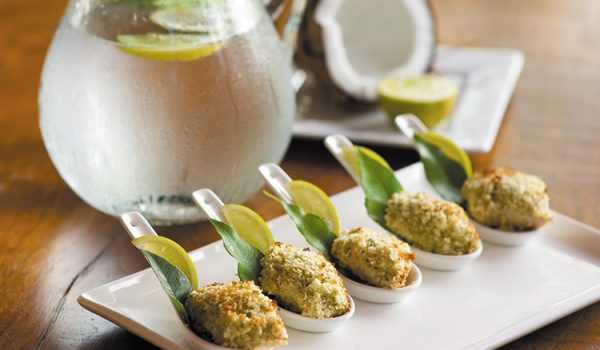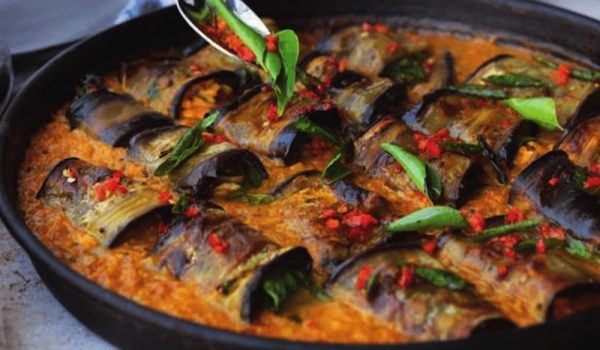The latest superfoods Proats, Hemp, Kanuka and a new ways of eating called Flexitarianism are among the many new health and wellness trends for 2018. So to help you keep up with what’s topical, check out our guide below.
With the new year underway, Healthy Life’s qualified experts have revealed what is set to steal the limelight from charcoal and kombucha this year.
- HEMP: On November 12, 2017, hemp was legalised in Australia for human consumption after more than 15 years of lobbying from the hemp industry. Retailer Healthy Life became among the first in Australia to stock hemp food products including Green Path Organics hemp protein powder and Made in Hemp protein powder, seeds and oil.
- Rich in protein, essential fatty acids, minerals and vitamins, including large amounts of magnesium, manganese, fibre and folate, hemp has a five-star health rating and is the second highest source of vegetable protein in the world. It also has a complete amino acid profile, including all nine essential amino acids which the human body can’t produce on its own and Omega 3, 6 and 9 which are critical for brain, skin and joint health. Hemp is also a rare source of gamma linolenic acid (GLA), which is a type of Omega 6 well regarded for its anti-inflammatory properties
Now that it’s legal to consume hemp food products, expect to see hemp protein being combined with porridge, muesli, tea or blended into smoothies. With more nutrients than coconut and olive oil combined, hemp oil can also be used on salads or as a finishing oil while hemp seeds, with their earthy taste, can be sprinkled on any meal to add an instant nutritional punch. Despite what many may believe, hemp contains very little or no delta 9-tetrahydrocannabinol (THC) – the psychoactive component of cannabis – which means you won’t get high eating it.
- PROATS: Like all catchy blended words, ‘proats’ takes two great things and combines them into one supercharged entity. A blend of protein rich oatmeal, ‘proats’ is set to be the word on health bloggers’ lips in 2018. It’s easy to make your own ‘proats’ at home with a few healthy ingredients.
- For a balanced breakfast packed with protein, anti-inflammatory Omega 3, and natural energy, combine hemp seeds, chia seeds, peanut butter, oats, ground flaxseed, cinnamon and collagen together and add to porridge, muesli, yoghurt or a smoothie, or grab a packet of Ceres Organics protein oats with chia and almond.
- AND THE DIET FAD IS… So 2017, vegan and paleo diets have been slowly taking over Australia in recent years but the next diet fad is tipped to be a little more flexible, which is why it’s called ‘flexitarianism’. It’s a predominantly plant-based or vegetarian diet, which allows for small amounts of animal-based products. Consuming a plant-based diet can decrease the risk of cardiovascular disease and type 2 diabetes, two diseases on the rise in Australia, so this new diet could provide the Goldilocks balance for anyone in search of a healthy lifestyle change without having to give up everything they love.
- There is also a lot of buzz around the ketogenic diet, a very low-carb, high-fat diet that can help with weight loss, lowering blood sugar and insulin levels and general improved health. It works by shifting the body’s metabolism away from carbs and towards fat and ketones, creating a metabolic state called ketosis. Good fats, like those found in avocados, activated almonds or nut butters, are great brain food and many nutrients found in fats, in particular Omega 3, have been found to help with moods, memory and hormones. If you haven’t already heard of bulletproof coffee, might be the year you start adding butter and oil to your morning cuppa with the combination of saturated fats and coffee providing a more sustained release of caffeine that purportedly suppresses cravings, boosts cognitive function and energy and triggers weight loss by way of ketosis.
Ultimately the best diet is what works for each individual so we could also see more people embracing JERF (just eat real food).
- ADAPTOGENS: Just as they sound, adaptogens are a group of healing plants that help the human body adapt during times of stress and with such high levels of stress in modern society, Australians are increasingly in need of adaptogens. From supporting the adrenal glands to improving immunity and the cardiovascular system to aiding fertility, soothing the nervous system and even assisting with good liver and kidney function, adaptogens are set to be the next big thing in health. While they’ve been around for hundreds of years, they are having their 15 minutes as Australians continue to seek out a more holistic, natural approach to their health care.
- The most common are functional mushrooms, like reishi, cordyceps, and chaga, which are being added to drinks such as tea, coffee and smoothies to boost immunity, support heart health, and even fight inflammation, while also delivering a surprisingly creamy flavour. Don’t be surprised to see reishi lattes alongside turmeric and matcha drinks on café menus around the country or pick up some Fusion Astra 8 Immune Tonic with astragalus and reishi mushrooms from your nearest Healthy Life store for a boost of adaptogens at home.
- KANUKA: Not to be confused with its close relative Manuka, a newly-discovered type of Kanuka has medical and health industries abuzz with its powerful oil and honey shaping up to be the next medical miracle from nature. With powerful antibacterial, anti-microbial and anti-inflammatory properties, it has topical applications for common skin diseases such as eczema, psoriasis, dermatitis, rosacea, acne and cold sores. Sven’s Island Kanuka honey can also be taken internally to promote good gut health and help fight infections. It has even been identified as a potent broad-spectrum antibiotic particularly effective against Staphylococcus aureus, including the MRSA (Methicillin-resistant Staphylococcus aureus) variety which is resistant to commonly used antibiotics.
- SEAWEED: Found to have higher levels of iodine, potassium, folate, calcium, iron, and magnesium than greens on land, packed with vitamins A and C, and one of the only natural sources of vitamin B12, seaweed is brimming with health benefits which researchers are increasingly starting to uncover. A team at the University of Wollongong is currently conducting trials to further understand the effect of seaweed fibre on gut, metabolic and skin health after initial research showed improvements in non-HDL (high density lipoprotein) cholesterol, inflammation, insulin sensitivity in overweight participants, the levels of good gut bacteria and even psoriasis in one trial participant. While the Japanese, who have one of the highest life expectancies in the world, have long been singing the praises of this super green from the sea, it is set to increasingly make its mark on the western world. Dried nori, dulse, arame, wakame, kelp and spirulina, make a great low-calorie snack or can be added to meals to bolster their umami taste profile and nutritional content.









